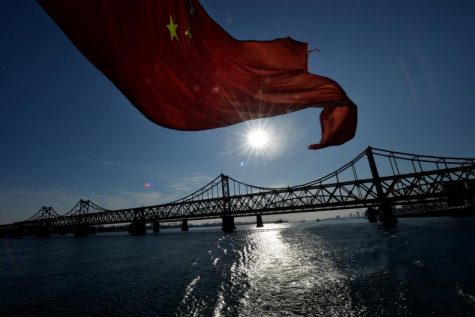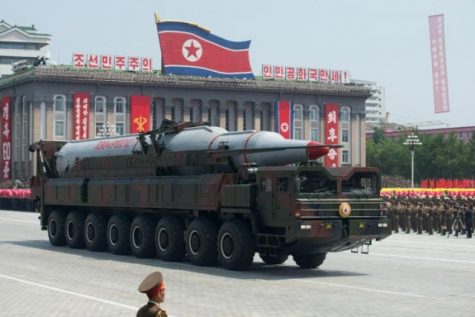Alliance on the line: China and North Korea
Capital of North Korea, Pyongyang launched its fourth nuclear test along with a ballistic missile in early 2016, which led to complications with its relationship with China’s capital, Beijing. Due to this, Beijing publicly supported the continuation of the Six Party Talks, which is the multilateral framework, aimed towards denuclearizing North Korea. This is troublesome for North Korea since China is no doubt North Korea’s most important ally. On the other hand, China breaking ties with North Korea could be beneficial for other countries like the United States and South Korea as they have been discussing the denuclearization of North Korea for quite a while.

China’s support for North Korea dates back to the Korean War, around 1950 to 1953, when its troops flooded the Korean Peninsula to aid its northern ally. To this day, China is North Korea’s biggest trading partner and main source of food, arms, and energy. But, strains in the countries’ relationship began to surface when Pyongyang first tested out a nuclear weapon in October of 2006. After this, China began to support the U.N. Security Council Resolution 1718, which pressed some rules on Pyongyang. For example, one rule was that North Korea must “not conduct any further nuclear test or launch of a ballistic missile,” “suspend all activities related to its ballistic missile program,” and “abandon all nuclear weapons and existing nuclear programs in a complete, verifiable and irreversible manner.” But North Korea disobeyed these sanctions and continued on to execute their third nuclear test in February of 2013. China then requested the North Korean ambassador to join them in a meeting to implement new trade sanctions, reduced energy supplies to North Korea, and called for denuclearization talks.
For a long time the United States has pushed North Korea to give up its nuclear weapons program in return for aid, diplomatic benefits, and normalization of relations. When that failed, the United States also attempted to persuade China into helping them and South Korea put an end to North Korea’s nuclear weapons. But experts say that although the U.S. and China shared the goal of denuclearizing North Korea, they have two totally have different perspectives on how to accomplish that. “America believes in pressuring North Korea to change its behavior, while Chinese diplomats and scholars have a much more negative view of sanctions and pressure tactics,” says the International Crisis Group’s Daniel Pinkston. “They tend to see public measures as humiliating and counterproductive.” But still, the United States has not given up in trying to get China to stop aiding North Korea with supplies.

As these talks with China and North Korea continue, the U.S. has also been in talks with Seoul, capital of South Korea. The two countries have formed a strong bond and were discussing how to establish a missile defense system called Terminal High Altitude Area Defense (THAAD) to ensure regional security and the safety of South Korean citizens, though Beijing strongly condemns its potential deployment and sees it as a threat to Chinese national security. Though Beijing, Seoul, and Washington have voiced apparent solidarity (PDF) for a denuclearized North Korea, differences remain over how best to strip the country of its nuclear threat.
But why exactly is China not breaking ties if this denuclearization is such a big threat? North Korea’s leader, Kim Jong Un knows exactly why. BBC news reports that he is fully aware that China’s main objectives are to prevent instability and war on the peninsula. The only thing worse than an ally planning a nuclear attack is a shared border with a unified peninsula under Seoul’s control, tied to the alliance with the U.S. These reasons are exactly why China might reluctantly agree to a nuclear North Korea and continue to aid them.
There is no way for China to avoid chaos and start with a relatively clean slate. But for now, President Xi of China and Barack Obama will still continue to expand policy coordination on North Korea, discussing the dangers arising from North Korea’s determination to stay a nuclear state. Tensions are rising and North Korea and China’s alliance is definitely on the edge.





